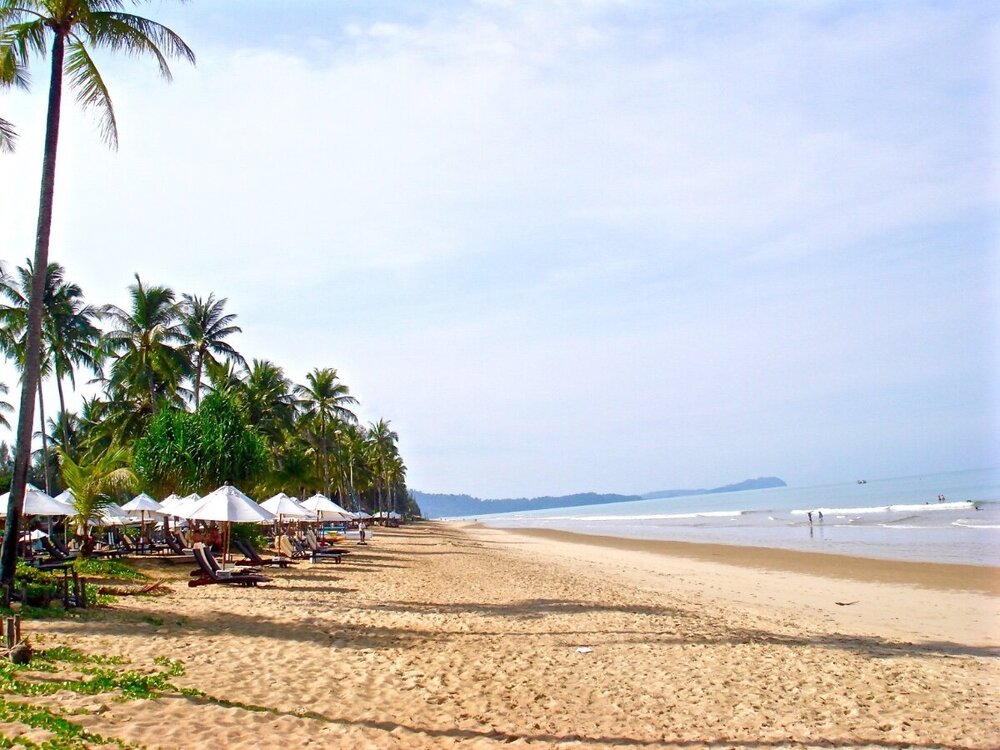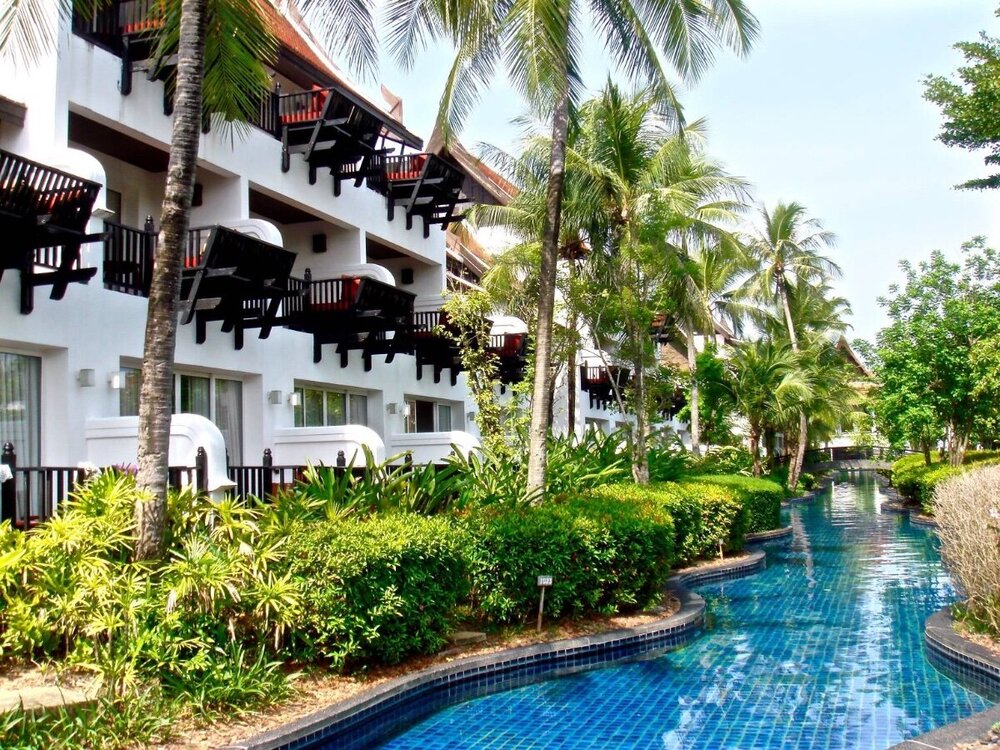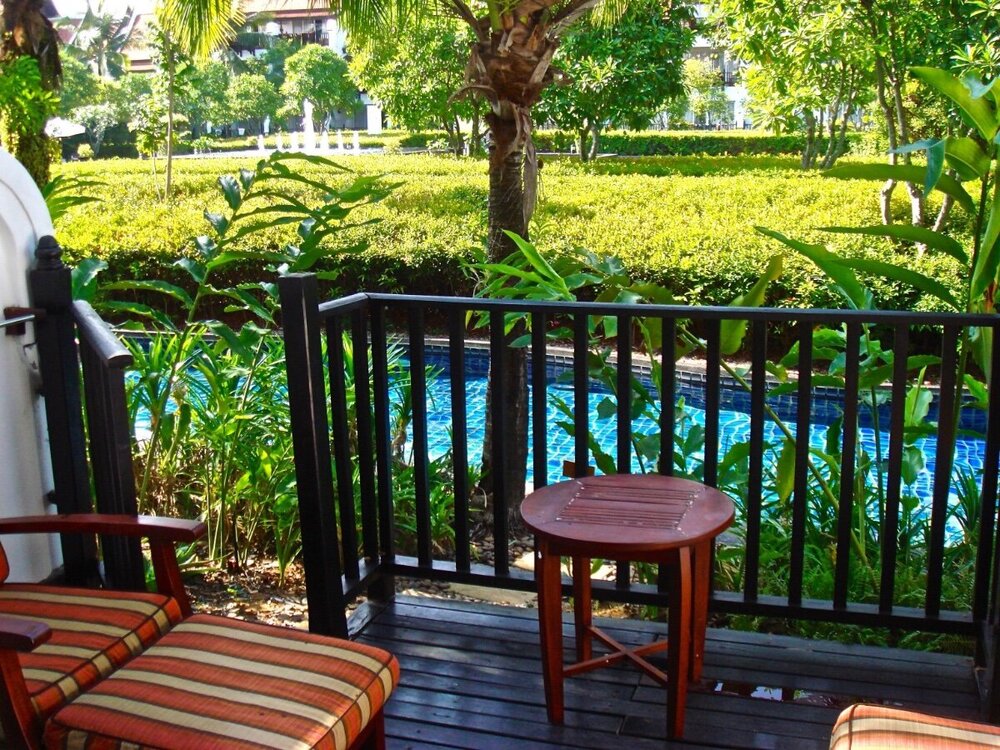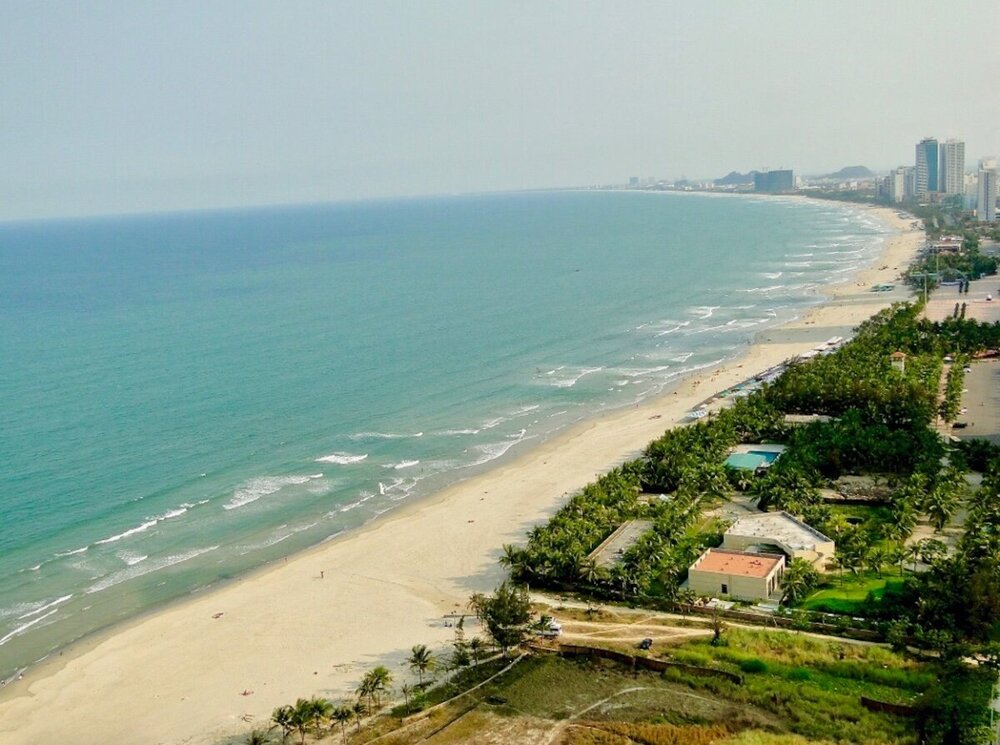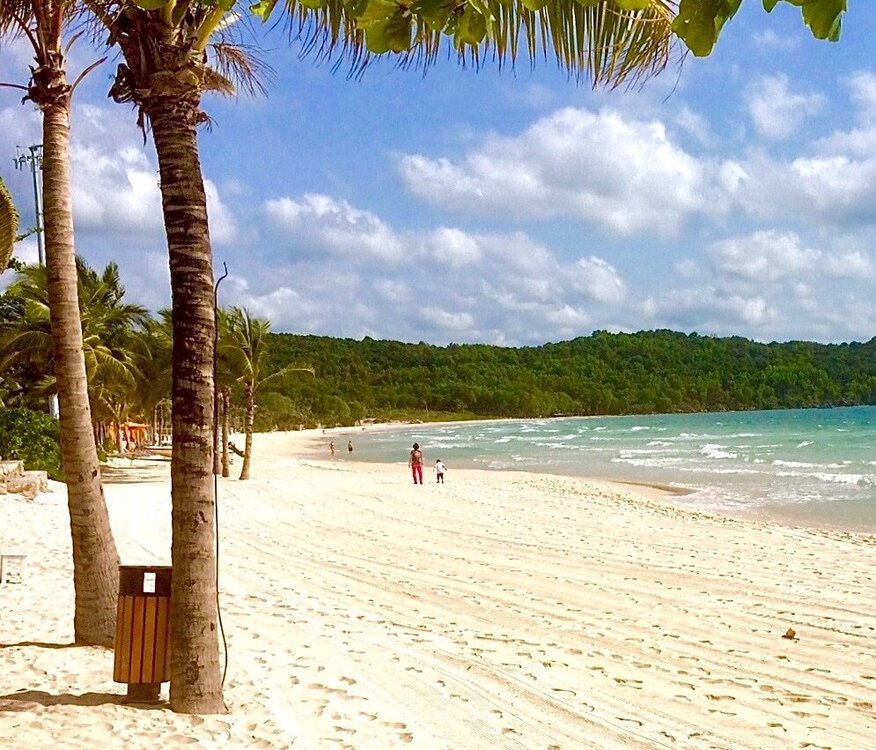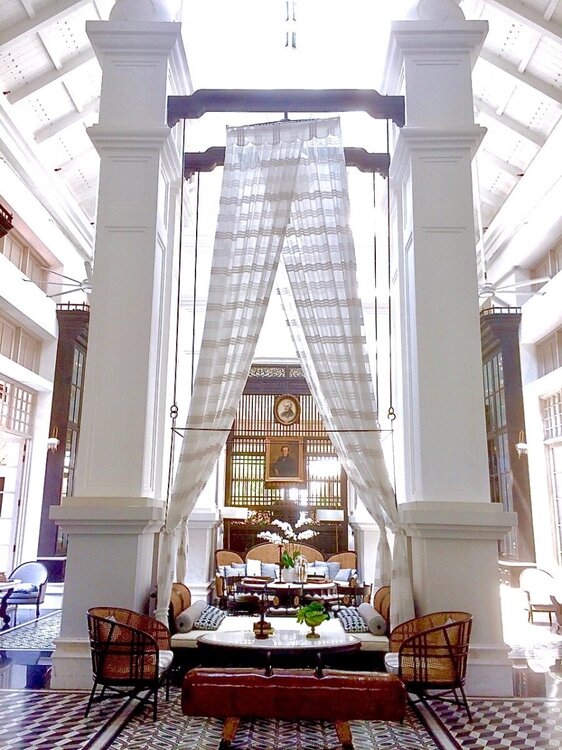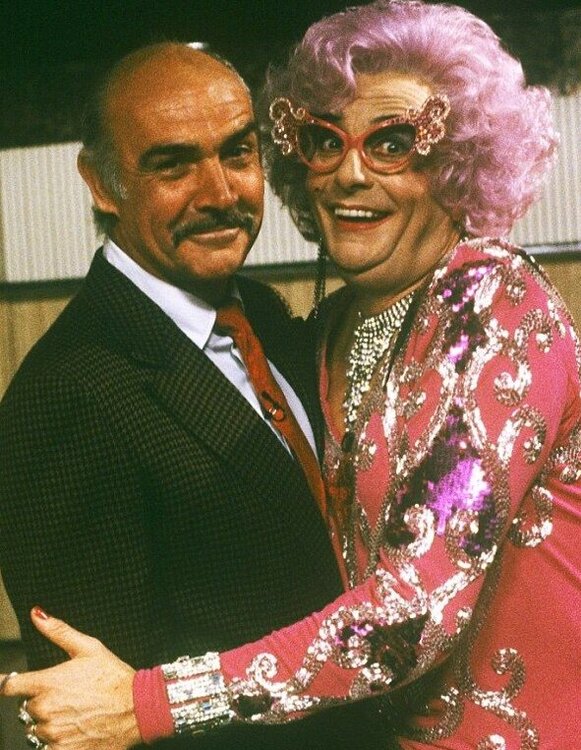
PeterRS
Members-
Posts
6,649 -
Joined
-
Last visited
-
Days Won
402
Content Type
Profiles
Forums
Events
Everything posted by PeterRS
-
I am told that some saunas are open. Heaven sauna near the river end of Silom is open. Sauna Mania off Soi Convent is the closest to the gay area but call to double check prices before you go. I am told that pre-covid it had a huge age discrimination policy. Under 50 and the entrance fee was around 280 baht. Over 50 and you'd be stung for 1,500 baht. Mostly Thais and Asians. Chakran sauna off Soi Aree is also open. When it first opened around 2000 it was a classy place attracting quite a few foreigners in addition to young locals. For some years, though, it has been almost exclusively sticky Asian. It was one of the first saunas to have a nude night in part of its facilities. These now seem quite common in those saunas catering mostly to Thais and Asians.
-
I have not been to Phuket for its gay offerings for many years. In fact, I now do not visit Phuket because apart from the beaches and some restaurants there is not much reason to go when the world and his wife seem to descend on the island. One of my favourite Thai restaurants, though, is Baan Rim Pa. This is on a small cliff before Kalim Bay just north of Patong and virtually opposite the Novotel. The view is superb and we have always had excellent food and cocktails. https://www.baanrimpa.com/thai-restaurant-kalim/ If it is just a beach you are seeking and already have a Thai friend with you, I thoroughly recommend Khao Lak around 100 kms north of Phuket. There are lots of hotels here but they are very spread out and you will find you have the lovely beach almost to yourself. I stayed at the Marriott Resort some years ago and loved it, especially the ground floor rooms which have access to a small waterway that wends around the property and ends up in the main pool. Perfect for a pre-breakfast swim! Several local restaurants just off the beach.
-
Suspect Le Bouchon is still not yet open in the new location. Passed by the top of Soi Nanta/Mozart on Sathorn Soi 1 the day before Songkran and there was still a lot of work going on. Two notes on the excellent recommendations. Eat Me is a wonderful up-market small Australian fusion restaurant that has maintained its standards for something like 20 years now. But its prices have risen very considerably and it's now nearer the top end. It's also not the sort of restaurant that you should walk into wearing a Hawaian short and shorts. The location of Ruen Urai in an old-style Thai house at the Rose Hotel on Suriwong is excellent as is its Thai cuisine. It's small and elegant, and looks more pricey than in fact it is. Book in advance and insist on being on the ground level. Upstairs there is no view and feels quite claustrophobic. For Italian, Zanotti on Soi Convent is near the top of the tree with prices to match. Much better value and more casual is Il Bolognese off Sathorn Soi 7. The owner for many years sold the restaurant more than a year ago and has moved to a new Italian restaurant off a soi at the lower end of Soi Ngamduplee (closer to Narathiwat). Sorry cannot recall the name.
-
With Taiwan's borders still closed to most people and covid rates again spiking, I guess the only hope for an EVA London/BKK service any time soon will be if the airline has completely separate crews for the London/BKK sectors. Apart from the additional costs of basing crews outside Taiwan, both the UK and Thailand have vastly more daily cases than Taiwan. I'm not optimistic about a resumption of flights in the summer - and Taiwan friends agree. More likely the end of the year.
-
Perhaps there will be more life now for my favourite aircraft, the A380. Qatar has already announced two A380 daiiy flights on the Doha/BKK route.
-
I have stayed in 2 Marriott hotels in Vietnam. 2 years ago just before lockdown I was at the Four Points by Sheraton in Danang. Lovely hotel. 300 rooms but probably only 30 occupied. The hotel's only problem really is that you have to cross the main dual carriageway into town to get to the beach. The year before I used points for 5 nights at the quite beautiful Marriott Resort on the island of Phu Quoc. Although part of Vietnam, it is located under Cambodia. Pre-covid there was a daily Bangkok Airways flight linking the island. From Ho Chi Minh, there is a short flight but almost better to take the jetfoil service. This is one of the Bill Bensley-designed hotels in Asia. I thought it one of the loveliest I have ever stayed at. It is right on its own private beach which was spotlessly clean. All the staff were wonderful, even though the young lady at the bar was not sure how to make a proper extra dry vodka martini. I showed her and the result was excellent. The only problem with the Marriott brand is that it tends to be more expensive. I could never have paid for my nights at Phu Quoc or I would be back again in a flash.
-
The Taiwan issue has been front and centre for some time now and has assumed greater prominence as a result of Russia's ghastly incursion into sovereign Ukraine. The question for Taiwanese now is surely: has the Ukraine invasion made it more or less likely that China will attempt to retake Taiwan by force. My view, based on no particular facts, is that China will now be less likely to use force and will again try the more softly softly approach. I say that only because China now has several major problems. One is covid and its seeming inability to control the pandemic. When entire cities like Shanghai are closed down, the once thought to be controlled pandemic is very clearly out of control. Second is the effect of the pandemic and to a lesser extent the war in Ukraine on the country's economy. Exports are falling, but it is the effect on an increasingly pissed-off population that will worry the authorities more. China's government rules through a bargain with its people. As long as the Chinese as a whole continue to prosper under communist rule, the leadership will face no opposition. Even though the country has a huge censorship department to control the dissemination of dissent, the current waves of localised dissent have to be more than slightly worrying. Of greater concern, though, must surely be the way the world has virtually united against Russia in its invasion of Ukraine. For all its rhetoric about external interference in its internal affairs blah blah, China's leaders are not so dumb that they do not realise full well that the country cannot afford a world united against it. For what it is worth, my view is that Taiwan will be off the front burner now for quite some time. That certainly is what i hope.
-
Generally I would agree with the sentiments so far expressed. Joiners can be easier at less expensive hotels. I did have one very embarrassing experience at what was then the 5-star Regent Hotel on Rajadamri (so we are going back quite a few years - it later became the Four Seasons and is now the Anantara). I took a boy back from one of the bars at around 10:00 pm. I knew there were security staff on duty at the lift lobby and managed to get into a lift without being seen. I had forgotten about cctv cameras, though. Within a minute of getting to my room there was a knock on the door. It was security. I did not answer. After various similar episodes, the phone rang. And then rang again. I refused to answer. The end result was a less than satisfactory tryst. I also agree with @reader that the Montien definitely had a no joiner policy. I have written before about a conversation I had with the Assistant GM of the Mandarin Oriental hotel - again quite some time ago. We were having drinks in the lobby when a young man entered with what was obviously a bar girl. Before they even got to the lifts, a security officer approached them. End result? The girl had to leave. No argument about it. I asked my colleague what the hotel's policy was. No joiners after a certain time as it was against the law for hotels to accommodate non-guests who were not registered. But if the guest brought a girl or a boy who was dressed in line with the hotel policies - i.e. pleasantly casual but no tank tops, no flip flops etc. - then they would be given the benefit of the doubt and allowed upstairs. I have heard that there is no problem with joiners at Le Meridien on Suriwong. When I spent my one test&go night there last week, I saw no security in the lobby at all and the lift area can not be seen from the front desk. At two mid-price hotels in that area there used to be desks by the lift lobby to get extra payments for guests taking joiners to their rooms. Not sure what the situation is now. Checking hotel policies in advance as suggested by @z909 is a good idea, although given the government's overnight rule, I still think it is best to book a double room and then have your boy du jour register. Chiang Mai There is certainly a lot to see in and around Chiang Mai. From @musgrave's post, though, it seems Chiang Mai's gay scene continues in the death throes that started more than 5 years ago. We found the bars now situated across from Le Meridien boring. The money boys are more interested in the locals who frequent them or in their cell phones than new customers. There are certainly other gay massage spas in addition to Classic. The two gay saunas seem to be doing quite good business. Club One-Seven is located near the southern outskirts on the river across from the huge Holiday Inn Hotel. The older House of Male in the north west of the city always seems to have some students from the nearby University, but with the Songkran holiday about to start I suspect there may not be many until term time starts again. This site is worth checking - https://www.gay-in-chiangmai.com
-
I returned on March 29, had my test at BNH and was given the 5th day test pack by the hospital. The hotel helped me upload the latest morchana app. On the 5th day i did the test (again negative) and waited. I have never been sent the form I am supposed to fill in. I have just assumed that with the scrapping of the testing on April 1, the authorities did not bother rechecking anyone who had arrived less than 5 days before then.
-
15 years ago a Hong Kong Chinese man was sentenced to two months in prison for making "unwanted" advances to another Chinese in the sauna of a well-known gym. The "advance" consisted of a hand wandering on the other man's thigh!
-
There is sadly nothing new in these unfortunate episodes. In the UK homosexuals and those allegedly breaching public morality were routinely hounded and prosecuted whilst the great and the good got away scot free while indulging in the same habits. Need one mention Jeremy Thorpe, the Leader of the Liberal party who was an out and out homosexual, and Lord Boothby who, not only having an affair with the wife of Prime Minister Harold MacMillan, also indulged in homosexual parties. The rich always look after themselves. Look at the Red Bull heir who murdered the traffic policemen while driving in his Ferrari around 200kph down Sukhumvit at 5:00 am with alcohol and drugs in his system. The government tell us it has been trying to find this low life for close on 10 years. Even though he has been spotted several times in this country and overseas, somehow the powers that be are and remain totally blind. One wonders how much cash has been transferred to various bank accounts to ensure that this remains the case.
-
I was in Europe for 3 weeks in March. I had booked Qatar biz class about 4 months earlier at what I felt was a very good fare, although when you added on the extra charges for seat selections and use of the lounges, it certainly mounted up. All four of my flights were totally full, even biz class. Thinking I might return in June, the basic price has risen by 25%. I guess I am surprised it is not higher.
-
Mea culpa. Cathay Pacific never flew over Europe for its pre vivid JFK flight and its trans-Pacific route was never a contender for the world's longest flight. Singapore's non-stop trans-Pacific flight to Newark was considerably longer. Also one of the CX to and ex-JFK flights stopped in Vancouver. I fail to understand how this flight could not be rerouted further north over Canada to shorten the distance. But then I am not an airline planner. I note the plan is only for the return sector from JFK to be routed over Europe due to the strong upper atmosphere winds. This will add 2,254 miles to the length of the previous trans-Pacific return. No doubt fares will reflect that!! But with covid rampant and Hong Kong's quarantine regulations still extremely stringent, I cannot see many taking that route.
-
Is this another April Fool joke? For at least 15 years pre-covid CX flew up to 5 flights a day to JFK. All were over the Pacific and came nowhere near Soviet airspace. SIA flew to Newark via Europe but its non-stop service was over the Pacific, I believe.
-
Oh I think with a facelift here and there, a hair transplant (if there was any left to transplant) and botox injections every six months, maybe we would have lasted a little longer. Whether everything would be in good working order is another matter, but I'm told there are medications to help. On the other hand, with all those procedures we'd probably have no cash left for trips to Thailand!
-
I thought he must be in a retirement home by now - or should that be 'she'? It's a long time since we heard about the gay icon Dame Edna Everage. But even at age 88 she is still on the go. Next month she starts a 2 month The Man Behind The Mask tour around the UK. Well, I suppose it really should be 'he' for it is Barry Humphries who is touring and others appearing will no doubt be legendary characters like Sir Les Patterson. I once had the opportunity of meeting him. I was in Hong Kong and had had discussions with his manager, at that time John Reid. Barry wanted to do a week's season in a theatre in Hong Kong. After all, he had something to prove. In the late 70's he had done a stint at a cabaret restaurant at the top of the Mandarin Hotel - and totally bombed. Reid wanted me to meet him to give him some background on the territory. As requested, I called him at the Regent hotel on the other side of the harbour. He was charming. Rather than my going over to see him, he would be shopping in the afternoon. Could I meet him in the lobby of the Mandarin Hotel at 5:00pm? He suggested he tell me what he was wearing so I would recognise him. Oh, that's certainly not necessary, I said, as you are such a well known personality. Five minutes in advance, I was plonked on a comfy armchair in the lobby. I waited. Still I waited. By ten past 5:00, I realised the personality I knew was Dame Edna, not Barry Humphries. What if i missed him? So from then on I asked almost every middle-aged man who entered with shopping bags if he was "Mr. Humphries"! I felt so stupid. Eventually he arrived at 5:35 wearing a double breasted suit and carrying at least six large shopping bags. He was full of apologies. We ended up having a lovely long chat and I met Mrs. Humphries #3. I helped as much as I could but he was never to appear in Hong Kong. I understood from a promoter that he wanted a large fee on account of around 90% of all revenues including sponsorships. Around the end of the 1980s, as Dame Edna he did a series of interview shows for one of the London TV companies with many famous guests. Some were hilarious, including one with Sean Connery. This used to be available on youtube but has sadly been taken down. https://www.theguardian.com/lifeandstyle/2022/mar/05/this-much-i-know-barry-humphries-edna-can-say-things-i-could-not-possibly-express
-
I was only in Tawan twice a few years ago, and then only because I had guests from overseas who were desperate to see it. Desperate rather summed up my views. Apart from us, no more than 3 customers in the bar the first time and 2 the second. Both visits a bored looking bunch of guys on the stage. I know - horses for courses. I just thought these guys should have been put out to pasture some years earlier! Hope the present lot are more interactive with the customers.
-
I hope you are very young because it will take decades to get him before the Court - if ever. At least Russia signed the Rome Treaty setting up the Court. George Bush famously said that no American would ever be hauled before the ICC and the USA is not a member. Nor is China! for that matter.
-
When I was last there, the price was quoted in roubles but paid in US$.
-
DId I say something wrong?
-
I am sure all reasonable people agree. But the difference between the 1970s/80s and the 2020s is that Russia has the largest stock of nuclear weapons anywhere. We already know that NATO will not agree to Ukraine's request for a no-fly zone simply because of what might happen if a NATO aircraft brought down a Russian aircraft. Unlikely it would immediately result in a nuclear war, but it would dangerously escalate what is already a horrible situation. That the Russians are now fighting very close to Europe's largest nuclear power station is bad enough. What are these monsters thinking about? Sadly I believe there is nothing the west can do that will bring Putin down. Sanctions take time to work and there is little historical evidence that sanctions really work as intended. Only the Russian people can take Putin down. After nearly a quarter of a century in power, ex-KGB agent Putin will surely have his internal defences pretty secure by now, I'd think. But it was his surrounding coterie that got rid of Kruschev (as far as i know). Perhaps a group within Putin's inner circle may eventually find a way of getting rid of him.
-
I'm also very close to the Elite office on Sathorn so it is easy to deliver and pick up the passport and combine it with other things. The only other thing I found to do after the long trek out to Chaengwattana was a massage at a spa I had recently heard about. Hardly any English spoken but the massage was good and the ending as good. But I will try the online service if it is working well now.
-
I don't see these as destroying a thread. Some are very amusing. I seem to recall a saying that there is a very fine line between comedy and tragedy.
-
Court dismisses challenges to law criminalising sex between men
PeterRS replied to a topic in Gay Singapore
I had not realised the Search engine is so fast and effective. Here is the post written about the death of Inspector MacLennan and how that changed the law for Hong Kong's LGBT community. -
Court dismisses challenges to law criminalising sex between men
PeterRS replied to a topic in Gay Singapore
This ruling was entirely predictable. Singapore's PM has repeatedly said he will not do anything to get rid of Section 377A. On the other hand he has also said he will not enforce it except in instances where the law is openly disobeyed - by which I reckon that means something like public sex in an open area. The cultural/religious argument that Singapore's government constantly throws out as its reason for not abolishing Section 377A is pretty much rubbish. The same reason was put forward by the Hong Kong government in the 1970s and 1980s which had the same law on the statute books. Roughly 95% of Hong Kong's population were Chinese and the government line was that the Chinese would never stand for legalisation of homosexuality. In those decades, it would routinely throw a few gay men in jail for a couple of years. It also had informants in the triads and in one of the two gay bars. One gay western solicitor found his time in jail little different to the luxury lifestyle he enjoyed when a free man. Thanks to corruption, he had a cell more like a well-furnished living room, all the good food he requested and a constant supply of young men! Someone wrote some time ago about an infamous case of the "alleged" suicide in January 1980 of a police inspector who was "alleged" to be outed as gay the following day. If I can find the post I will link it to this thread. That was all patent nonsense. But in the inquest and the various enquiries that followed, the public learned a great deal about government harassment of the LGBT community and even of a special government department specifically to root out gays from positions of authority. One High Court judge on learning of this fled Hong Kong in considerable haste. It was even alleged that the unmarried Head of the Police Force was gay and enjoyed gay weekends in Kuala Lumpur. But he held his ground and was never removed. As a result of the huge public fuss over the death of this policeman, the government tasked the Law Reform Commission with reviewing the anti-gay law. Its very clear recommendation was that it be abolished. Yet still the government sat on its arse and did nothing for several years. Ironically it was Hong Kong's return to China that forced Britain's hand. To become a full member of the international community, Hong Kong had to enact a Bill of Rights. Both parties agreed that the time had come for homosexuality to be decriminalised. The flood of complains from the local Chinese community never materialised. There was not even one peep! Thus from 1991 the Hong Kong LGBT community came gradually to be accepted. The many gay couples in the city could finally come out (if they wished) and gay bars, saunas and massage spas began to proliferate. Presumably Singapore's government has similar concerns - even though it permits gay saunas and bars to operate. But I have rarely, if ever, seen any objections to the abolition from any cultural group on the island state, be it Chinese, Malay, Muslim or Indian. It is the small rabidly anti gay group of Christian evangelical Churches which hit the headlines every time the word "gay" is mentioned. As has been proved quite recently in Court, some of these groups are, like some of their American twins, very corrupt institutions. Why they are permitted to operate AND to have tax exemption totally beats me!

